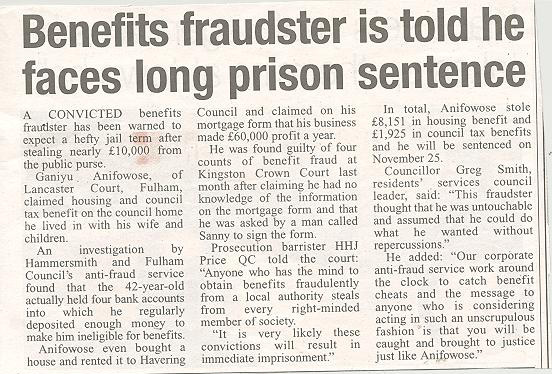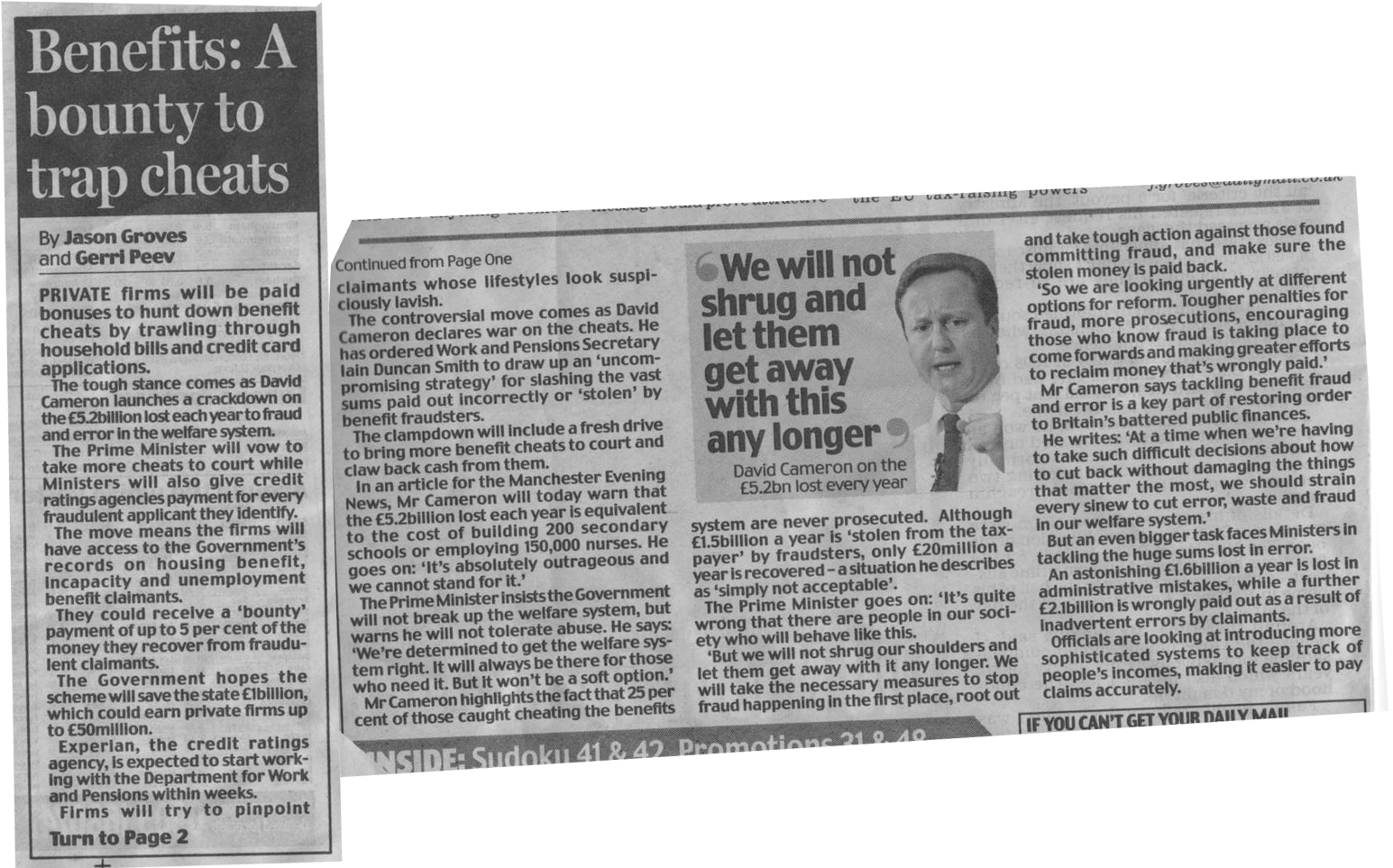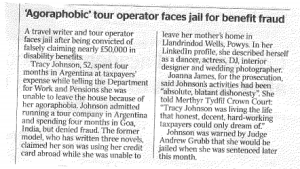Benefit Fraud Lawyers
Hylton-Potts - London Based Law Firm Helping People Across the UK since 1999
Table of Contents - Click to
- 0.1 It is not if they catch you but when.
- 0.2 We are on your side and will help you fight your case related to benefit fraud
- 0.3 Click play below to listen to this podcast episode.
- 0.4 BENEFIT FRAUD INTERVIEWS UNDER CAUTION
- 1 Sentencing for Benefit Fraud and pension credit fraud
- 2 Hylton-Potts – We can help – We are on your side
- 3 HMRC compliance office
- 4 Tax Credits and pension credits
- 5 We also specialise in dealing with the National Health Service (NHS) fraud investigation.
- 5.1 More Information on Benefit Fraud Law
- 5.2 Student loan and grant problems
- 5.3 If the Child Support Agency (CSA) Criminal Compliance Department are investigating you, or wish to interview you under caution we can help.
- 5.4 Legal Aid
- 5.5 Benefits: A bounty to trap cheats
- 5.6 DWP cannot recover all benefit overpayments
- 5.7 Housing cheat forced to hand back her keys
- 5.8 We can help with appeals to the Social Security and Child Support Appeals tribunal and the First and Second Tier Tribunals
- 5.9 Fraudster claimed more than £20k
- 5.10 Benefit cheat wife follows her husband in being sentenced
- 5.11 Defence to Benefit fraud charges
- 5.12 How your benefit claim is checked for benefit fraud
- 5.13 Types of Benefits
- 5.14 Appeals
- 5.15 Judicial Reviews of HMRC Decisions
Benefit Fraud and Tax Credit Fraud : £1250
Benefit Fraud or Tax Credit Civil Appeal: £1250
You may have had a letter to attend an interview under caution. If you become a client of ours you will not be attending.
We never allow our clients to be interviewed. We repeat if you become a client of ours you will never be interviewed.
We are particularly good at helping when you have claimed benefit, tax credit or council tax, to which you were not entitled
We can help if you have been accused of subletting your property/flat.
We can help if you have been accused of unlawful, or fraudulent subletting.
We are experts in helping with Student Loans Fraud Prevention issues, and obtaining successful outcomes with DSA Counter Fraud Services.
We can help with problems involving the following types of benefit, Jobseeker’s allowance( JSA), Income Support, Disability Living allowance (DLA), Child benefit, Working tax credit, Child tax credit, Council tax benefit, Housing Benefit, Attendance Allowance and Carers Allowance.
Learn more by clicking on the podcast on our Homepage.
Because of the credit crunch and recession, the Government has tripled its resources into Benefit Fraud and Tax Credit Fraud enquiries.
It is not if they catch you but when.
Consult the experts. For more information or a free legal opinion telephone 020-7381-8111 or email [email protected]
Rodney Hylton-Potts is a recognised expert lawyer at benefit and tax credit fraud, and his views are frequently sought by the media. There follows a radio interview he gave on 1 July 2013, with solid and practical tips on what to do if you are in trouble.

Click play below to listen to this podcast episode.
[audio:05_benefitfraud.mp3|titles=Benefit Fraud|artists=Rodney Hylton-Potts]We are here not to judge you, but to help you.
We have a high success rate in negotiating and successfully defending these claims, or otherwise obtaining the best possible outcome, i.e. the re-payment of the benefits claimed, with payment terms, without a criminal prosecution or even a caution.
We never allow our clients to be interviewed. We repeat if you become a client of ours you will never be interviewed.
We can prepare a statement with you by phone and email, to avoid an arrest or a stressful tape-recorded interview by the Fraud Enquiry Office or police.
As far as we know our service is unique.
We negotiate on your behalf with a high success rate in achieving a satisfactory outcome with the Job Centre Benefit Fraud Enquiry Office, or HMRC.
People break the law for all sorts of reasons. For some, the pressures of family life can push them into situations from which they find it hard to escape from.
We understand this and how sometimes people can get themselves into unfortunate situations. The work we do is more than just a job for us and we work tirelessly to always get the best outcome for our client.
BENEFIT FRAUD INTERVIEWS UNDER CAUTION
The Benefit/ Tax Credit Offices and Local Authorities are on the lookout for people claiming benefits to which they are not entitled, either deliberately or by accident.
If they think you have committed a crime, they write stating that you have to attend an interview usually under caution.
The letter is often signed by somebody who may not sound like a fraud investigator but is. “Benefits Enquiry Officer” or “ Audit Officer” but does not tell the whole story.
Often the letter says that the interview is under the Police & Civil Evidence Act, and tape recorded and that you will be given a caution.
The caution says that you do not have to say anything, but if you do anything you say can be used in Court against you.
Clearly such a letter should not be ignored.
Should you attend the interview?
The standard advice given by solicitors is to attend the interview but to take a professional advisor. No great surprise there! The part about getting expert advice is correct, but what is completely wrong is the fact that you have to attend at all.
The clue is in the words “You do not have to say anything” They cannot make you attend. They can threaten to arrest you, or even have you arrested with the help of the Police but you still you do not have to say anything.
Most people find these interviews intimidating. They thrust documents at you and try to catch you out and they are not your friends. Often there is a “hard man” “soft man”, two pronged approach (good cop, bad cop just like on TV) but not so entertaining when you are in the hot seat.
Telephone calls
A knee-jerk reaction is to telephone the Fraud Office when you get a letter like this. Do not. What you say may well be recorded and will certainly be noted. Many investigators record voices for signs of stress and use that as evidence of guilt.
In one survey it was found that 4,000 people ended up being prosecuted on the basis of evidence being obtained in this way in a period of four months, so clearly it is widespread. You therefore do not contact them, but leave that to your expert advisor.
The alternative Hylton-Potts approach.
We contact the fraud investigator Local Authority and obtain details of their concerns. You probably know what those concerns are but we like to hear what they say. We clearly want to get your side of the story to them, because otherwise it will go to somebody called a decision maker, who lurks in in Glasgow or Belfast, who will decide whether to prosecute you, without your input.
That would be most unwise.
What we do is send in written statements. This is called a Criminal Justice Act Statement and has the force of an Affidavit and if it contains untruths you allow for perjury so it is just as good as being tape-recorded. The advantage however is that we painstakingly and skilfully draft your story and send it in by post, rather than getting it across under huge, intimidating pressure is a police style interview.
You believe you have done nothing wrong.
It is not what you think that matters. It is what they think. That is why you need expert help because you may not even realise you have broken the law. The regulations are very complicated and even expert lawyers pore over some of the wording, so what chance has a layperson got?
Spending your benefit.
Sometimes the Benefit Authorities suspend your benefit to try to force you to attend the Interview Under Caution. It is unlawful and they are not allowed to do that and can be stopped.
Some solicitors advise attending the interview and giving a “no comment” interview which you will also have seen on TV. Nothing annoys a full investigator more than that approach. This Increases their costs and time they spend on your case (they are not very well paid). It is not the way to go.
Appeal against overpayment.
Aside from the criminal aspect you may dispute the amount of the overpayment and if you do this is done by writing a letter saying that you wish to appeal within one month so obviously if the overpayment figure is reduced or even eliminated, that can only help on the criminal side.
If you are prosecuted you should seek expert help immediately. Even after a prosecution has started, and a summons served, it is still possible to have it stopped and replaced with an Administrative Civil Penalty which is administered in private. This “slap on the wrist” often involves repaying what you have had wrongly, with up to 50% penalty added, but that can be dealt with by instalments if necessary and deduction from future benefits which is relatively painless and much better than a criminal prosecution.
At Hylton-Potts our approach is different and has been honed and improved over the years, and has been proved time and time again, to be the best way to make these problems go away, and avoid the disaster of a criminal prosecution, publicity or even a prison sentence.
The important thing however is to take advice early, but there is no Legal Aid for what we do.
We are here to help you with our highly competitive fixed fees, and can see the whole matter through at affordable prices, completely confidentially and, as you will find we are very good at what we do.
We are not doctors, but know that the impact of our legal work can be as important and life changing as that of a surgeon.
We are informal and approachable, but deadly serious about helping you, just like a top surgeon.
At Hylton-Potts we operate a free 24 hour helpline by email on [email protected] in office hours. free phone line on 0207381811.
Sentencing for Benefit Fraud and pension credit fraud
Prosecutions take place for fraud for as little as £2,000 and on conviction a Community Service order, or fine, is usually imposed a first offence.
Between £5,000 and £20,000, there is usually an immediate custodial sentence of three months, for the first offence.
For cases involving benefit overpayment of over £20,000, a custodial sentence of around 9-12 months will normally be imposed.
Our job is to change that.
Large-scale benefit fraud can result in sentences of over 30 months. A jail sentence can contain a deterrent element and make ‘examples’ of people.
We mitigate penalties for our clients by off-setting the amount of benefits they have legitimately received against the amount of overpayment claimed. We work out the correct levels of claims and investigate our client’s circumstances. This can reduce the amount of overpayment by up to 80%.
Mitigation can reduce any sentence and an early guilty plea will always do this. In cases of benefit fraud, extra factors that are taken into account are the amount of time over which the fraud occurred and the total amount. Character evidence and voluntary repayments will also be taken into account. A helpful report from a sympathetic doctor can help.
Download the Benefit fraud sentencing tariff as a pdf.
Ten Year Jail Term for Benefit Fraudsters – Click here to read
Ten-year jail term for benefit fraudsters
Benefit and tax credit fraud costs Britain almost £2 billion each year
Benefit cheats face increased jail terms of up to ten years under a crackdown
More cases will be pursued and tougher sentences sought by sending suspects straight to Crown Court, in new guidelines for the Crown Prosecution Service.
The enormous economic cost of benefit fraud will be a major consideration in whether charges are pursued.
Middle-class and “professional” cheats will be targeted as the offence is brought into line with crimes such as money laundering and banking fraud. The CPS will also aim to ensure that those responsible receive similar sentences.
The move comes after the CPS took over legal work for the Department for Work and Pensions (DWP), which previously had an in-house team. Prosecutors will be told to seek tougher penalties in cases with aggravating factors such as multiple offences, abuse of a position of trust or substantial loss to public funds. Professionally planned frauds, which could include divorcing couples who fail to notify the authorities about their true circumstances, will also be targeted.
Increasing numbers of suspects will be charged under the Fraud Act, which carries a maximum penalty of ten years’ imprisonment. In the past, benefit cheats have usually been pursued under specific social security legislation, which carries a maximum term of seven years.
While benefit fraud of less than £20,000 was previously automatically allocated to the magistrates’ courts, which can only hand out sentences with a maximum of 12 months, the financial threshold will now be abolished. It means that even small cases can be referred to the Crown Court for stronger sentencing if the circumstances are warranted, in an acknowledgement of the widespread and damaging nature of the offence.
Hylton-Potts – We can help – We are on your side
We can further reduce the penalty by making representations as to the circumstances of the offence and how the fraud began, what the money was spent on and particular special matters relevant such as family breakdown, illness or disability. If a client has committed a benefit fraud in order to feed their young family, then we can ensure this is taken into account in sentencing and given full consideration by the court.
Pressure from others such as bullying by partners, forced marriages, not understanding the regulations, poor English, medical problems and full cooperation, are all factors we can help you with, to get the best possible result. We have accountants and sympathetic doctors who will help.
HMRC compliance office
We can help with enquiries from the HMRC compliance office, and do not allow our clients to be interviewed.
We are experts at helping with Right to Buy applications fraud enquiries
Tax Credits and pension credits
If you are in trouble for having wrongfully claimed tax credits or pension credits, we can help. The CPS are cracking down and are prosecuting far more.
We can help you even if the prosecution process has started.
We have great success in getting the HMRC, to look at cases again, and exchange a civil penalty, for a criminal prosecution, even if one has begun and a summons has been served.
Click We are experts at Council tax fraud investigations
Interview under caution
We have an excellent track record in avoiding prosecutions. We do not allow our clients to undergo a stressful interview under caution. We deal with the compliance office for you.
At Hylton-Potts we can further reduce a sentence by making representations as to the circumstances of the offence and how the fraud began, what the money was spent on and particular special matters relevant such as family breakdown, illness or disability. If a client has committed a benefit fraud in order to feed their young family, then we can ensure this is taken into account in sentencing and given full consideration by the court.
Pressure from others such as bullying by partners, forced marriages, not understanding the regulations, poor English, medical problems and full cooperation, are all factors we can help you with, to get the best possible result. We have accountants and sympathetic doctors who will help.
We also specialise in dealing with the National Health Service (NHS) fraud investigation.
Usually the problem arises when a care worker has claimed sick benefit when well, misrepresented qualifications or maybe used a false name.
We have an outstanding track record in avoiding criminal prosecutions.
We can help if you fear being struck of the NHS list, or fear a prosecution and possible prison sentence.
More Information on Benefit Fraud Law
We are better and cheaper than solicitors. For more information or a free legal opinion telephone 020-7381-8111 or email [email protected].
Student loan and grant problems
If you have got into a mess, and have claimed benefit when perhaps you should not, contact us – the specialists.
Our job is to make the threat of a criminal record or a prison sentence go away, and we are very good at it.
We offer a fast and efficient service, and are committed to a high level of client satisfaction.
The Fraud Investigators know us all over the country and love our approach. We make their life easy, and keep investigation costs down.
Unlike experienced Legal Aid solicitors, we do not ask for copy documents for the sake of it, or treat them like idiots, which they are certainly not.
Invariably the response is “Thank Heavens you are involved. How can we sort this out ?”.
Hylton Potts – The reliable lawyer for Benefit Fraud Advice
If the Child Support Agency (CSA) Criminal Compliance Department are investigating you, or wish to interview you under caution we can help.
An interview can be frightening, especially as it is like a police interview, when you are given the caution and it is on tape. They thrust documents at you without warning, and try to catch you out, and a prosecution is far more likely if they think you are not being 100% straight with them.
We do not allow our clients to be interviewed
What we do is contact the Benefit Fraud Office, cancel the interview, discuss the situation with them and prepare a statement for you. We do this in private and in confidence with you, and the aim is to send it by post, to avoid an interview. This minimises the chances of them deciding to arrest or prosecute, or a prison sentence if they do.
Also, in appropriate cases, we submit medical reports, often from sympathetic and helpful private doctors, and character references.
This minimises the chances of them deciding to prosecute, or a prison sentence if they do.
The CSA Investigators know us all over the country and love our approach. We make their life easy, and keep investigation costs down.
Unlike inexperienced Legal Aid solicitors, we do not ask for copy documents for the sake of it, or ttreat them like idiots, which they are certainly not.
Invariably the response is “Thank Heavens you are involved. How can we sort this out?”
As far as I know our approach is unique.
Consult the experts.
For more information or a free legal opinion telephone 020-7381-8111 or email [email protected].
Legal Aid
We specialise in helping people who cannot get Legal Aid, or where none is available.
Legal aid solicitors are usually free. They are often dedicated and compassionate, but quite clueless and inexperienced, and just sit there, adding no value.
You need a specialist, and very streetwise.
It is like the difference between a Harley Street specialist and the local crowded GP’s surgery. The prisons are full of people on legal aid.
Our fixed fee, no nonsense, no bullshit approach may appeal to you.
We are better and cheaper than Solicitors.
If you think we might be the Lawyers for you please contact us – For more information or a free legal opinion telephone 020-7381-8111 or email [email protected].
Benefits: A bounty to trap cheats
Rock star faces jail for fraud – click here for full article
“Former Executive at ‘American Idol’ Parent Facing Jail for Fraud” Read the story here or Click here for PDF version.
If you are worried that you have broken the rules, and want to stop a criminal prosecution or record consult the experts.
For more information or a free legal opinion telephone 020-7381-8111 or email [email protected].
DWP cannot recover all benefit overpayments
The Department for Work and Pensions (DWP) cannot recover welfare benefit payments through the courts where the claimant is not at fault, the Supreme Court has ruled.
Between March 2006 and February 2007 the DWP wrote to over 65,000 claimants telling them it could sue them, if they did not return overpayments made as a result of administrative errors.
The benefits involved included income support, incapacity benefit, disability living allowance, jobseekers’ allowance and child benefit.
In The Child Poverty Action Group v Secretary of State for Work and Pensions [2010] UKSC 54, the judges said it was common ground that the secretary of state was entitled to recover overpayments resulting from misrepresentation or non-disclosure (what you and I would call benefit fraud).
But what about through no fault of the citizen benefit was overpaid because of the mistake at DWP? From now the citizen can keep the money.
The Judge said it was “entirely rational” for Parliament to decide that only those whose behaviour brought about the overpayments should be liable to reimburse them.
If you want expert confidential advice consult the experts. For more information or a free legal opinion telephone 020-7381-8111 or email [email protected].
Housing cheat forced to hand back her keys
We can help with appeals to the Social Security and Child Support Appeals tribunal and the First and Second Tier Tribunals
Fraudster claimed more than £20k
Benefit cheat wife follows her husband in being sentenced
Click here to read the articles
Do not let this happen to you. We can help.
We help people in England, Wales and Scotland with benefit fraud and tax/pension credit problems.
Benefits cheat UK: Court sees a staggering 23 cases of welfare fraud in just ONE DAY
– click here to read the full article
For more information or a free legal opinion telephone 020-7381-8111 or email [email protected].
If you have a problem with the police, or could be arrested, consult the experts – For more information or free legal advice telephone 020-7381-8111 or email [email protected]
We have a good knowledge of welfare benefits and the entitlement criteria that go with them.
We have extensive experience of tribunals and have attended appeal hearings personally. We are particularly familiar with what appeal chairs are looking for to reverse authority decisions.
‘Disabled’ Benefits cheat filmed fighting police – click to download
New Credit checks will trap benefit fraudsters – click to read
Benefits cheat with £1/2m in property – click to read
Door-to-door blitz on benefit cheats – click to read
Jail for benefit cheat who bought a house – click to read

 ‘We cannot stand for it’: Mr Cameron described the massive amount of money lost to fraud as ‘absolutely outrageous’ He pledged: ‘We need to do more to stop fraud. This is simply not acceptable. We will take the necessary measures to stop fraud happening in the first place, root out and take tough action against those found committing fraud and make sure the stolen money is paid back.
‘We cannot stand for it’: Mr Cameron described the massive amount of money lost to fraud as ‘absolutely outrageous’ He pledged: ‘We need to do more to stop fraud. This is simply not acceptable. We will take the necessary measures to stop fraud happening in the first place, root out and take tough action against those found committing fraud and make sure the stolen money is paid back.
So it is not if they get you but when. If you are worried consult the experts – For more information or free legal advice telephone 020-7381-8111 or email [email protected]
Defence to Benefit fraud charges
The law is Section 112 of the Social Security Administration Act 1992 which provides as follows: ‘A person shall be guilty of an offence if:
(a) there has been a change of circumstances affecting any entitlement of his to any benefit or other payment or advantage under any provision of the relevant social security legislation;
(b) the change is not a change that is excluded by regulations from the changes that are required to be notified;
(c) he knows that the change affects an entitlement of his to such a benefit or other payment or advantage; and
(d) he fails to give a prompt notification of that change in the prescribed manner to the prescribed person.’
Change of circumstances
While the above primary legislation describes what the claimant should do to notify a change of circumstances, it is the regulations which set out how a claimant is required to fulfil that obligation. Under the old 2001 regulations the designated office had to be set out on the claim form. This posed numerous problems for local authorities because the designated office was different for each local authority, and many claimants now still apply using old forms or forms which have been generated from sources other than the local authority processing the claim, such as the Department for Work and Pensions.
Manner of notification
Social Security Housing Benefit regulation 88 requires the notification of a change of circumstances to be made in writing to the designated office. Depending on the structure of each local authority there may be a number of offices to which the claimant may notify a change in circumstances. This regulation also makes provision for delivery of the change in circumstances to what is known as a ‘gateway office’ or an office bearing the ‘One’ logo.
Regulation 88 states;
(1)… if at any time between the making of a claim and a decision being made on it, or during the award of housing benefit, there is a change of circumstances which the claimant, or any person by whom or on whose behalf sums payable by way of housing benefit are receivable, might reasonably be expected to know might affect the claimant’s right to, the amount of or the receipt of housing benefit, that person shall be under a duty to notify that change of circumstances by giving notice in writing to the designated office.
(2) In the case of a claimant who sent or delivered his claim to a gateway office, a change of circumstances may be reported in writing to that office, or to any other gateway office of which he was notified on or with his claim form.
…(5) Where a person resides in a postcode district identified in part 1 or 2 of schedule 2 to the Social Security (Claims and Information) Regulations 1999, he may notify the change of circumstances by giving notice in writing to any office of a designated authority displaying the ONE logo.
The form should say that notification should be in writing. That requirement is not always mentioned on all claim forms. It has become apparent that some local authorities do accept verbal notifications. The question as to whether a local authority accepts the latter is worth asking, particularly if the claimant insists that he has made a verbal notification.
Designated office
The 2006 regulations enable local authorities to state the designated office on forms additional to the claim form. In accordance with regulation 2 of the Social Security Housing Benefit Regulations 2006 no. 213, ‘designated office’ means ‘the office designated by the relevant authority for the receipt of claims to council tax benefit:
(a) by notice upon or with a form approved by it for the purpose of claiming council tax benefit; or
(b) by reference upon or with such a form to some other document available from it and sent by electronic means or otherwise on application and without charge; or
(c) by any combination of the provisions set out in sub-paragraphs (a) and (b) above’.
The 2006 regulations came into force on 6 March 2006. Any failure to notify in respect of claims made before that date will be dealt with under the 2001 regulations, which stipulate that the designated office must be on the claim form. Solicitors dealing with these earlier claims, should therefore look at the claim form to see whether it contains the relevant information. As for claims made after March 2006, enquiries should be made as to whether the designated office has been stated in any other manner which still complies with the regulations.
The duty to include the prescribed information is paramount. If this information is not clearly set out on the claim form the prosecution may not be in a position to prove the ‘knowledge’ element of the offence.
The basic principle is that a person cannot be guilty of an offence except under clear law. On any prosecution, whether the notification requirements have been expressed clearly enough will be a matter of fact for the judge to consider and decide. Where they are insufficiently clear, the justices will usually be able to make a ready finding that the defendant was unaware of the requirements, and therefore did not knowingly fail to notify the change.
If you are accused of benefit tax credit fraud, all is not lost. An acquittal is very possible, and this also helps persuade the prosecution to accept a civil, administrative penalty with no criminal record, publicity or risk of prison.
If you are being investigated for all accused of benefit fraud or tax credit fraud, consult the experts – For more information or free legal advice telephone 020-7381-8111 or email [email protected]
How your benefit claim is checked for benefit fraud
Routine checks on your benefit claim
At the beginning of your claim, HMRC make enquiries to check the information you have given is accurate.
What you have told them or written on the claim form may be compared with records about you held by another government agency. For example, HM Revenue & Customs (HMRC) may be asked if you’re paying tax and working or to confirm your stated earnings.
Information about you will also be shared with local authorities who must check claims before administering Housing Benefit and Council Tax Benefit.
Checks can be made by HMRC at any time, not just when you first make a claim. Sometimes a check is made on everyone getting a certain benefit or on a particular group of people who claim it.
What happens if there is a problem with your claim
If the enquiries made by HMRC about you don’t match what’s in your claim, authorised HMRC Fraud Investigators may visit you at home or ask you to attend an interview to discuss the matter. At Hylton -Potts we do not allow our clients to be interviewed.
An interview can be frightening, especially as it is like a police interview, when you are given the caution and it is on tape, under the Police and Civil evidence act. They thrust documents at you without warning, and try to catch you out, and a prosecution is far more likely if they think you are not being 100% straight with them.
We do not allow our clients to be interviewed.
To repeat if you become a client of ours you will never have to attend an interview under caution.
What we do is to contact the Benefit Fraud Office, cancel the interview, discuss the situation with them and prepare a statement for you. We do this in private and in confidence with you, and the aim is to send it by post, to avoid an interview. This minimises the chances of them deciding to arrest or prosecute, with publicity, or a prison sentence if they do.
Also, in appropriate cases, we submit medical reports, often from sympathetic and helpful private doctors, and character references.
Detailed checks on your benefit claim
If benefit officers believe your claim is fraudulent, HMRC Fraud Investigators will look at it in more detail. They may gather information about you and family members then compare it with information already given on claim forms or in interviews.
Fraud Investigators can contact organisations that hold information on you including:
- banks
- building societies
- credit providers
- credit card companies
- money transmission companies
- insurance companies
- credit reference agencies
- education providers
- water, gas and electricity providers
- telecoms companies including mobile phone companies
- the Student Loans Company
- government agencies including HMRC
- overseas authorities
Officers obtain this information and these documents without notice to you.

For more information – Councils using controversial lie detector tests to catch benefit fraudsters
We are the most thoroughly spied-on, recorded and monitored people in the world.
Your data could be included on the DWP data-sharing, the National DNA database, the National Identity Register, the NHS Detailed Care Records Service, the Audit Commission’s National Fraud Initiative, the Home Office’s Intercept Modernisation Programme and the SOCA database of Suspicious (financial) Activity (which retains data regardless of guilt or innocence)
It is not a case of if they catch you but when.
Types of Benefits
- Jobseeker’s Allowance (JSA)
- Income Support
- Disability Living Allowance (DLA)
- Child Benefit
- Working Tax Credit
- Child Tax Credit
- Council Tax Benefit
- Housing Benefit
- Attendance Allowance
- Carer’s Allowance
If you have a problem with benefit contact the experts – For more information or free legal advice telephone 020-7381-8111 or email [email protected]
Appeals
This section explains what you can do if you do not understand a decision the Benefit Office, Local authority or Jobseeker Office have made, or think it is wrong.
The first step to make when appealing is to apply to have the decision explained or reconsidered. If you choose to have the decision explained or reconsidered this must be requested within one month of receiving the decision notice. Equally, if after reconsideration you still wish to oppose the decision, you then have one month to bring an appeal.
Under special circumstances a late appeal may be accepted, but no more than 13 months.
Appeals Process
When bringing an appeal you have to
• Tell them which decision you disagree with and
• Tell them why you think it is wrong
• Give them evidence to support any statements you make
We operate highly competitive fixed fees to help you with this process
When the office has looked at the decision again, they will write to explain what they decided. If we they will not change the decision you will have the right to appeal to an independent body called HM Courts & Tribunal Service.
Again are highly competitive fixed fees are available if you decide, as many do, to seek outside help.
Making an Appeal to HM Courts & Tribunal Service
Appeals against decisions about Housing and Council Tax Benefit are heard by an independent body called HM Courts & Tribunal Service.
Once they have received your request for the decision to be submitted for an independent hearing, your case will be passed to an Appeals Officer. Your case will then be prepared by the Council or Job Centre / DWP and submitted to HM Courts & Tribunals Service for consideration. They will contact you directly from this point onwards. Once your appeal is accepted it will be listed for an independent hearing. They will write to advise of the date, time and place of your hearing. You will also be asked if you wish to attend or whether you would prefer the Tribunal to consider your case without being present.
The Tribunal will usually made up of one or two panel members, none of whom has any connection with the local authority or Job Centre, and who will be experts on the issues involved with the appeal. At least one will be a Judge. You can either have an oral hearing where both sides make oral representations in front of the panel or a paper hearing where both sides submit their argument in written form.
If you disagree with the decision made at the Appeal tribunal you can only challenge and take it further if there was further evidence which should have been submitted at the tribunal that wasn’t or you were unable to attend the tribunal even though you wanted to.
A further appeal may be made to the ‘Upper Tribunal Administrative Appeals Chamber’ (UTAAC) within a 28-day time limit. A further appeal may only be brought if the law was incorrectly interpreted, the correct procedures were not followed, there was a general lack of evidence or adequate reasons were not given for the decision made.
A legally qualified tribunal member will decide if your appeal can be sent to the commissioners, or if another tribunal should look at the appeal again.
The Upper Tier Tribunal comprises of Judges and expert members, who are appointed by the Judicial Appointments Commission. They are independent of both the Department for Work and Pensions and all local councils.
.
Help with making an appeal
We operate highly competitive fixed fees and are experts at the appeal process
The Social Security and Child Support (SSCS) Tribunal deals with disputes about:
• Income Support; Jobseeker’s Allowance
• Incapacity Benefit; Employment Support Allowance, Disability Living Allowance
• Attendance Allowance
• Personal Independence Payment
• Universal Credit
• Bereavement Benefit
• Carer’s Allowance
• Industrial Injuries Disablement Benefit
• Maternity Allowance
• Pension Credit
• and Retirement Pensions.
It also deals with disputes about:
• Child Support; Tax Credits
• Statutory Sick Pay (SSP)/ Statutory Maternity Pay (SMP)
• Compensation Recovery Scheme/ Road Traffic (NHS) charges
• Vaccine Damage
• and decisions on Housing Benefit and Council Tax Benefit.
We, at Hylton-Potts, can help you through your appeal and explain, step-by-step, the procedure of an appeal.
The Social Security and Child Support (SSCS) Tribunal is part of HM Courts & Tribunals Service, an executive agency of the Ministry of Justice.
The tribunal consists of two bodies within a single organisation:
• An independent appeal tribunal function (constituted as a tribunal non-departmental public body) with responsibility for the judicial functioning of appeal tribunals. This function is headed by the Social Entitlement Chamber President.
• An executive agency with responsibility for the administration of appeals. This function is headed by the Chief Executive of HM Courts & Tribunals Service.
The SSCS arrange independent hearings for appeals on decisions made by the Department for Work and Pensions (including Jobcentre Plus, Child Support Agency and Disability and Carers Service), as well as other government departments (HM Revenue and Customs) and local authorities.
Appeals are determined by independent tribunal panels whose decisions cannot normally be changed other than by way of a further appeal to the Upper Tribunal.
Appeals are heard at tribunal venues and are processed at seven operational sites throughout Great Britain.
Appeals to the First-tier Tribunal are against the decisions from government departments and other public bodies. The Upper Tribunal hears appeals from the First-tier Tribunal on points of law i.e. an appeal made over the interpretation of a legal principle or statute. Further appeals may be made, with permission, to the Court of Appeal.
Tribunal judges are legally-qualified. Tribunal members are specialist non-legal members of the panel and include doctors, chartered surveyors, ex-service personnel or accountants. Tribunals often sit as a panel comprising a judge and non-legal members however in some jurisdictions cases may be heard by a judge or member sitting alone.
Tribunals adopt procedures that are less complicated and more informal than those typically associated with the courts.
Judicial Reviews of HMRC Decisions
Where a taxpayer feels they have not been treated fairly, there is a way to fight back.
Judicial review proceedings can be brought on the grounds of illegality, irrationality or procedural impropriety. They are typically used to challenge “unreasonable” behavior such as a failure by the HMRC to follow its own guidelines or going back on a previous ruling
The rules on judicial review applications have been tightened since November 2012 when David Cameron promised to crack down on “time-wasting” caused by the “massive growth industry” in legal challenges to government policy.
For that reason expert help is a good idea. At Hylton-Potts we offer a no nonsense no-frills fixed fee service, and are experts in this field. We have a 24 hour free email help service on [email protected], and in office hours free legal helpline on 020 7381 8111.
Both services are strictly confidential and we can explain whether we can help you and if so what the fixed fees are.
Benefit cheat caught riding an elephant
Lexis intervirew-understanding benefit fraud
Councils using controversial
lie detector tests to catch
benefit fraudsters







